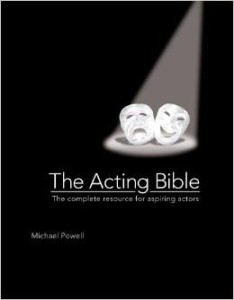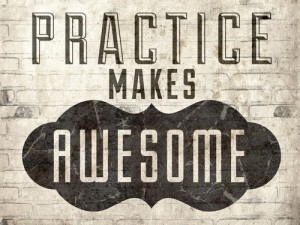What Makes a Great On Stage Actor?
 Acting is a gift. It takes a lot of talent and desire to be good whether you are on camera or on stage, however stage is a bit more difficult according to some people. The major difference is when you are on stage, you are performing live in front of an audience that will see every mistake that you may make. There are certain things that you can do though to make your skills more evident. These are the things you should focus on with each performance if you truly want to know what makes a great on stage actor.
Acting is a gift. It takes a lot of talent and desire to be good whether you are on camera or on stage, however stage is a bit more difficult according to some people. The major difference is when you are on stage, you are performing live in front of an audience that will see every mistake that you may make. There are certain things that you can do though to make your skills more evident. These are the things you should focus on with each performance if you truly want to know what makes a great on stage actor.
The Right Attitude
For a performer, attitude is the key to success. You must portray confidence when the character needs it, you must provide tears and sadness when it is required, and you must learn how to make your character’s feelings come across clearly. For instance, you wouldn’t want to be in the middle of a tear jerking scene that is meant to be sadness and have your teary eyes look more joyful than upset.
Another thing is that to have the right attitude, you must remain calm and pretend that the people watching you are not there. If you look out at the watchers, you will make them question whether you are in character or not and if you are not in character, you instantly become less believable.
A Voice That Flows
As an actor, you need to be able to project your voice and have it come across all of the people in the audience and remain understandable. This means that all of your spoken words, should be clear and easy to understand. Otherwise, you will end up with an audience full of people saying, “HUH?”
You should also have the ability to improvise. If you forget your lines, you should never let on that you have messed up. It happens to all great actors and actresses. Try not to miss a beat and keep it going. However, the improvisation should not be too far different from what your character would be feeling and saying in that circumstance and you should never mumble through it.

Practice Makes Perfect
This may sound boring and unappealing, perhaps even a bit repetitive, but you should never underestimate the power of practice. If you are a gifted actor, repeat and practice your lines until they become second nature. If you have mastered acting, which most people never will, you can break up the “lines” by trying to learn how to dance or sing. If you are chosen to play a character and you are not sure you have a full understanding of who they are, research to see what you can piece together about them or the things your character may do. If they have a job that is mentioned; learn about it, if they have a hobby; practice it, if they have a dog; learn about their dog’s breed. Every step you make to become that character, will improve your performance and at the end of it all, you will know what makes a great on stage actor. From there, the rest will be easy for you to handle.